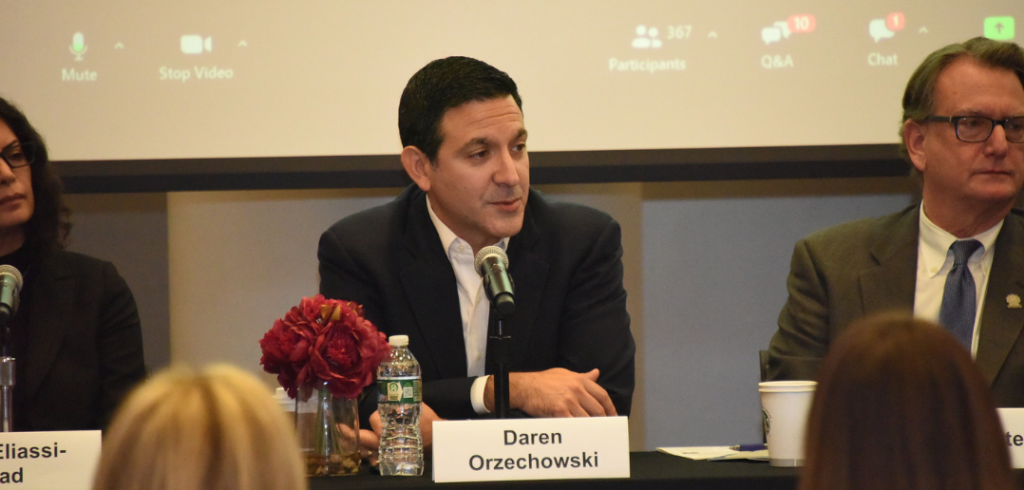Generative artificial intelligence technologies, including ChatGPT, are revolutionizing the legal world, raising complex questions involving AI sentience, personal privacy, and the future of legal ethics, education, and employment.
“The New AI: The Legal and Ethical Implications of ChatGPT and Other Emerging Technologies,” a day-long symposium co-sponsored by the Fordham Law Review and Fordham’s Center on Neuroscience and Law, recently explored these issues and more.
“Neuroscience, which seeks to study the human brain, is central to developing the next generation of these technologies,” said Professor Deborah Denno, founding director of the Neuroscience and Law Center. “Thanks to the latest neuroimaging devices, modern neuroscience has revealed deep insights into human reasoning and cognition. As AI devices are used for more complex tasks, they stand to benefit from even more nuanced understandings of human reasoning.”
The symposium facilitated a dialogue among scholars and practitioners working at the cutting edge of this impactful technology. The panelists, including attorneys, judges, professors, and scientists, shared their expertise on new AI developments, what their existence means for the legal industry, the potential ethical risks involved (including the risk of bias and discrimination), and how AI can be harnessed as a powerful tool to promote social justice.
The event featured a keynote address from Katherine B. Forrest, a partner at Paul, Weiss, Rifkind, Wharton & Garrison LLP, who has published two books examining the intersection of AI and the law.
“We’re entering a new world,” Forrest pronounced, “a world in which we humans will be confronted with our intellectual limitations as we watch the evolution of AI that we’ve created meet and exceed our capabilities.”
The implications for the law will be profound, said Forrest, who raised questions about whether humans will have ethical and legal obligations to AI if it reaches sentience and becomes self-aware.
“We will be confronted with questions of what it means to constrain the ability of a thinking entity to do the things it wants to do, or to require it to do things that it does not want to do, in ways that it does not like,” Forrest warned.
Forrest’s keynote will be published in the Fordham Law Review’s spring 2024 issue, which will also showcase articles by nine other panelists. Altogether, these pieces will serve as foundational scholarship for a vast range of future works on this topic.
The “New AI” was the most widely attended hybrid CLE symposium (attended in person and virtually) and the second most widely attended CLE event at Fordham. The symposium’s sponsors were the John Diane Simpson Family Foundation, John O. McManus and the team at McManus & Associates, the Cooley Law Firm, and the Flomenhaft Law Firm.
The New Ai Legal & Ethical Implications Of ChatGPT And Other Emerging Technologies – Nov. 3, 2023 from Fordham Law School on Vimeo.

